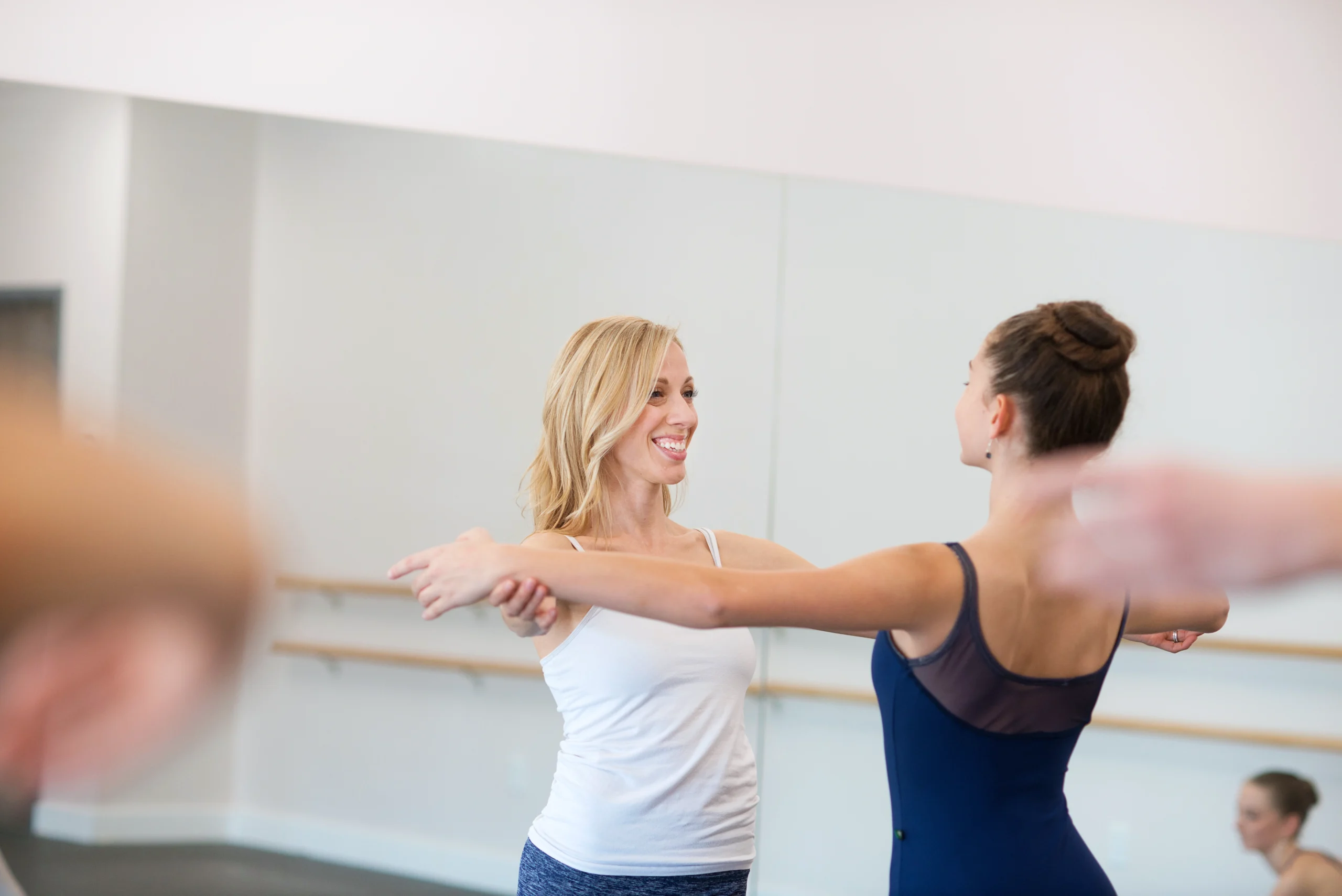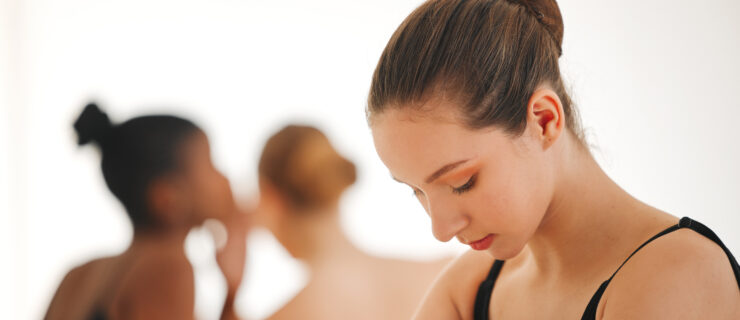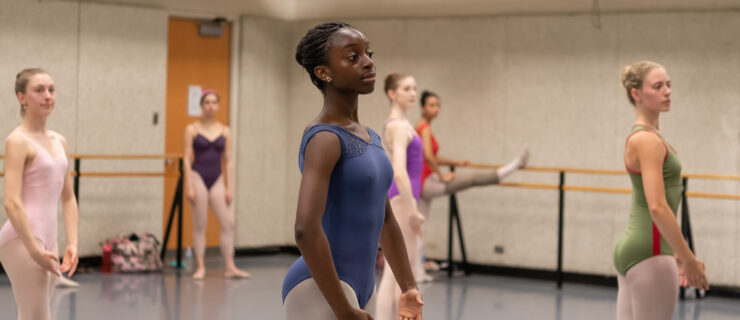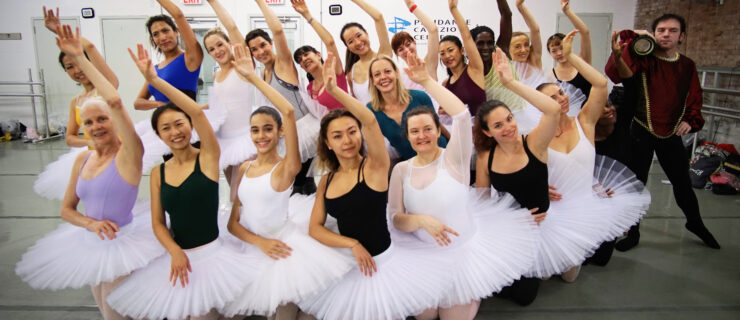Overcoming Feelings of Intimidation at Summer Intensive Auditions
For many dancers, auditions feel inherently nerve-racking. But auditioning for summer intensives, which often requires taking class at unfamiliar studios with dancers who appear stronger, might elicit a heightened sense of intimidation.
Fixating on others’ strengths instead of your own diminishes your ability to dance your best. Here, some pros who’ve been through it talk about how to overcome intimidation.
Why It Happens
Choreographer and former New York City Ballet principal dancer Lauren Lovette vividly remembers her first audition for the School of American Ballet’s summer program. With her heart set on getting in, the sight of legions of other equally hopeful students rattled her the moment she arrived.
“I found a corner of the room, out of the way, and watched as they held their stretches to their ears with ease,” she recalls. “I let it all get to my head and didn’t dance my best that day. I wasn’t accepted and felt the rejection to my core.”
Fear of the unknown, anxiety about a hoped-for outcome, and self-comparison are common reasons for that “lesser-than” feeling many dancers get at auditions. When that happens, it’s easy to fall into negative self-talk that will only make you feel worse, says psychotherapist and counselor Terry Hyde, MA, MBACP, who works extensively with dancers. “Anxiety itself is only created in our thoughts,” he says, noting that, often, thinking you’re less capable or worthy than those around you is a misperception. “I use the acronym FEAR: False Evidence Appearing Real. Focusing on it makes it worse and creates this ‘May as well go home’ attitude, which can really bring you down at the audition.”
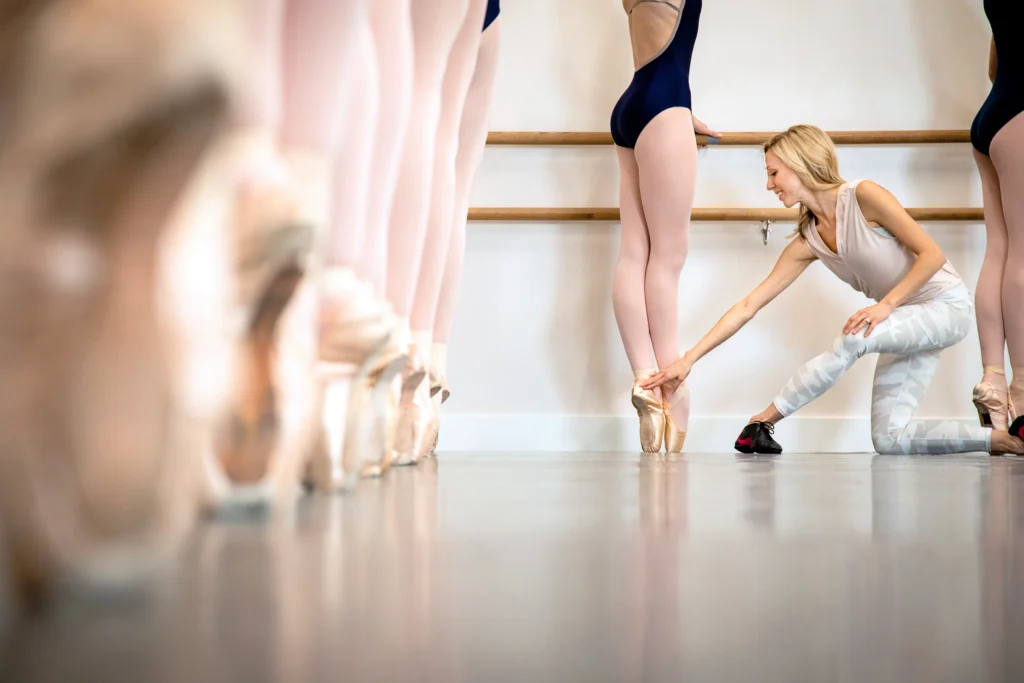
Focus on Your Own Strengths
Dance Conservatory of Charleston director and former New York City Ballet dancer Lindy Mandradjieff Fabyanic remembers feeling intimidated going from the small, suburban studio outside Pittsburgh, where she trained, to summer program auditions in the city. She says she handled her nerves the same way she advises her students to: by concentrating on her own assets, not anyone else’s. “What qualities do you have that no one else does? I was considered to have nice legs and feet, so I’d emphasize that when I was dancing, even if I was standing next to someone who could développé past their ear, which was not my strength,” she says.
Remember that another dancer’s strong suit isn’t necessarily more valuable than yours, Mandradjieff Fabyanic adds. “Whether you’re auditioning for a summer course or a company, you don’t know what they are looking for. So don’t let what you see that’s great about other dancers intimidate you. Because you may in fact be intimidating them!”
Redirect Your Thoughts
When feelings of inferiority threaten to shake your focus at an audition, Hyde recommends shifting your perspective. Look at it as a positive opportunity that you’ll benefit from, no matter the outcome, he says. “The way to handle an intimidating scenario is to say to yourself, ‘Aren’t I fortunate to be with all these people? I’m going to learn so much just by being here in this audition.’ If you tell yourself you’re excited instead of fearful, you’ll perform better.”
Turning off the fear factor isn’t always easy, but Hyde has tips for that, too. “Before you even go to the audition, think of three things that are really wonderful or enjoyable—a trip, a party, anything that really excited you—and when negative thoughts crop up, take your mind back to one of those wonderful, successful things that happened in your past,” he says. “Research has shown that the physical feelings of anxiety are identical to those of excitement. The only difference is the thoughts that accompany them.”
Prepare for the Best
Sometimes, even the prospect of a summer intensive audition brings on anxious feelings of inadequacy. Nip those in the bud, says Mandradjieff Fabyanic, by practicing visualization the night before or the morning of the audition. “Spend some time thinking through a ballet class, envisioning yourself doing all the things you want to do well and being the most successful you can be,” she says.
Keep in mind that even the dancers exuding confidence may be feeling jittery. Striking up conversation with other auditioners can personalize the experience, so you feel you’re with friends rather than competition, suggests Lovette. “Sitting alone in a corner only makes you more nervous! Talking to others is the best way to stay present and grounded.”
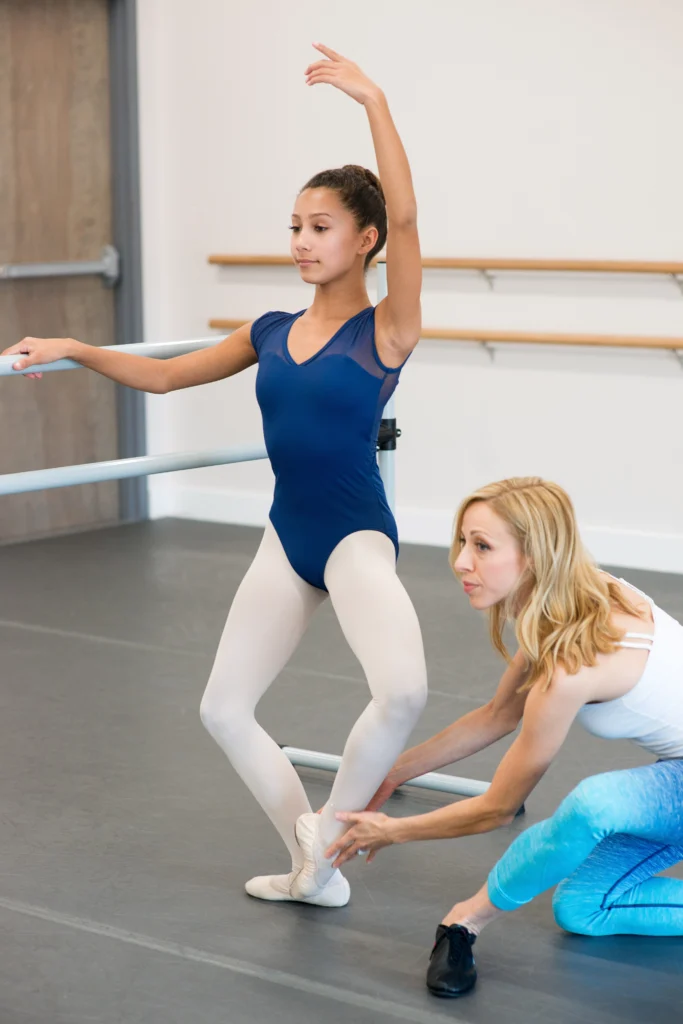
You Can’t Lose
Lovette came away from her SAB audition with a new mindset. She decided that no matter what, she wanted to leave future auditions knowing she’d accomplished something important. “I think oftentimes the outcome has less impact on our self-esteem than the process does,” she says. Lovette was accepted to SAB the following year. “Getting an acceptance letter is wonderful, but knowing you’ve faced your fear is even greater. I’ve found I can handle any disappointment as long as I know I gave my greatest effort.”
Mandradjieff Fabyanic reminds her students not to view auditions as win–lose events. “Even if you see someone you can honestly say is better or stronger than you, learn from them,” she says. “Have them inspire you. But don’t let it make you feel like you’re not going to make it just because there is one other good dancer. There’s space in the dance world for all of us.”
